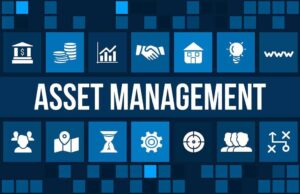Effective Pension Fund Governance and Regulations
Course Fee:
COURSE OBJECTIVE
Effective Pension Fund Governance and Regulations course, you will gain a broader perspective to pension and pension governance and regulation, and will thus be more capable and confident of driving changes for the betterment of pension schemes and plans.
• Increased understanding and knowledge of pension plans and pension governance and regulation
• Greater ability and expertise to closely review existing pension schemes of one’s organisation, identify gaps and correct them
• More awareness of universal standards and policies related to pension and replication of these in one’s organisation to ensure compliance and adherence
• Increased skills and knowledge to suggest changes to existing plans from the viewpoint of enhancement or devise new plans for the benefit of employees
• Greater abilities and confidence to handle change related to pension and pension policies in the organisation
• Increased confidence and broadened perspective to foresee and pre-empt challenges and risks to effective pension governance and regulation and address these well in time
• Increased capability and confidence to play a pivotal role in pension scheme management, governance and regulation in one’s organisation, thus demonstrating one’s talent, skill and preparedness to undertake additional roles and responsibilities for career growth and progression
• A sense of pride and satisfaction in helping one’s organisation assume competitive advantage as an employer and in devising the best plans and policies for the benefit of employees
COURSE CONTENT
Overview of Pension, Pension Governance and Pension Regulation
• Definition of pension
• Importance of pension governance
• Importance of pension regulation
• Types of pensions
• Defined benefit pension
• Defined contribution pension
Factors Determining Defined Benefit Pension
• Final salary at retirement
• Tenure of employment with the employer
• Accrual rate
Factors Determining Defined Contribution Pension
• Money paid by the employee into a pension
• Money paid by an employer into a pension
• Tax relief received by the employee
• Performance of employee investments
Benefits of Saving into Pension
• Employer contribution
• Tax relief
• No inheritance tax
• Diversified, well-managed investment portfolio
Possible Recipients of Public Pension Schemes
• Civil servants
• The judiciary
• Local government workers
• Teachers
• Health service workers
• Fire and rescue workers
• Members of the police forces
• Members of the armed forces
Potential Risks to Pension Funds
• Financial crises
• Dishonest employer and pension managers
• Lack of financial literacy of employees
Objectives of Pension Fund Regulation
• Rule and standard creation to protect against theft
• Ethical standard creation for pension managers
• Supervision of performance and activities of pension managers
• Penalty issuance on offence or non-adherence to rules
• Representation of the voice of individual workers to ensure pension security
Focus Areas for Regulation in Case of Pension Management by Agencies
• Risk aversion
• Outcome uncertainty
• Goal conflict
• Task programmability
• Outcome measurability
• Length/tenure of agent–organisation association
Stakeholders of Public Pension Funds
• Plan participants
• active members/current contributors
• retired member/current recipients
• survivors and dependents of active and retired members
• Government
• Taxpayers
Board-Related Focus Areas in Pension Governance and Regulation
• Board composition
• Nomination and termination
• Accountability
• Performance measurement
• Definition of roles and responsibilities
• Standards of behaviour
• Information management and transparency
Benefits of Good Pension Governance and Regulation
• High pension fund performance, low stakeholder cost
• Lowered overregulation costs
• Appropriate and effective supervision by authorities
• Positive effects on economic efficiency
Challenges in Pension Governance and Regulation
• Corruption and misconduct
• Lack of expertise of the governing body
• Agency issues
• Uncertain population dynamics
• Lack of required resources and skill
• Conflicts of interest
• Lack of incentives for fund managers
• Board member issues
• Lack of discipline
• Lack of skill and expertise
• Unclear, undefined responsibilities
• Incorrect member selection
Methodology
The training methodology integrates lectures, interactive discussions, collaborative group exercises, and illustrative examples. Participants will acquire a blend of theoretical insights and hands-on practical experience, emphasizing the application of learned techniques. This approach ensures that attendees return to their professional environments equipped with both the competence and self-assurance to effectively implement the acquired skills in their responsibilities.
DATE:
1ST BATCH: 3rd – 6th Mar, 2026
2ND BATCH: 23rd – 26th Jun, 2026
3RD BATCH: 20th – 23rd Oct, 2026
Course Category
- Human Resource and Admin
- Finance and Accounting
- Internal Audit and Fraud Control
- Stores, Procurement and Supply Chain
- Information Technology
- Aviation and Maritime
- Banking, Investment and Insurance
- Business Communication
- Construction Management & Civil Engineering
- Engineering, Instrumentation and Maintenance
- Entrepreneurship and Business
- Hotel & Hospitality Management
- Law and Contract Management
- Management and Leadership
- Project Management
- Public Relations
- Public Sector
- Sales, Marketing & Customer Service
- Secretaries & Personal Assistants
- Transport & Logistics
- Security and Safety
More Courses
VENUE
25, Queen street, Alagomeji Bus Stop, Yaba, Lagos









